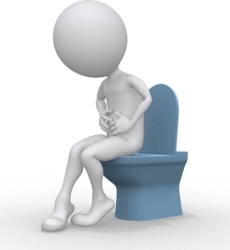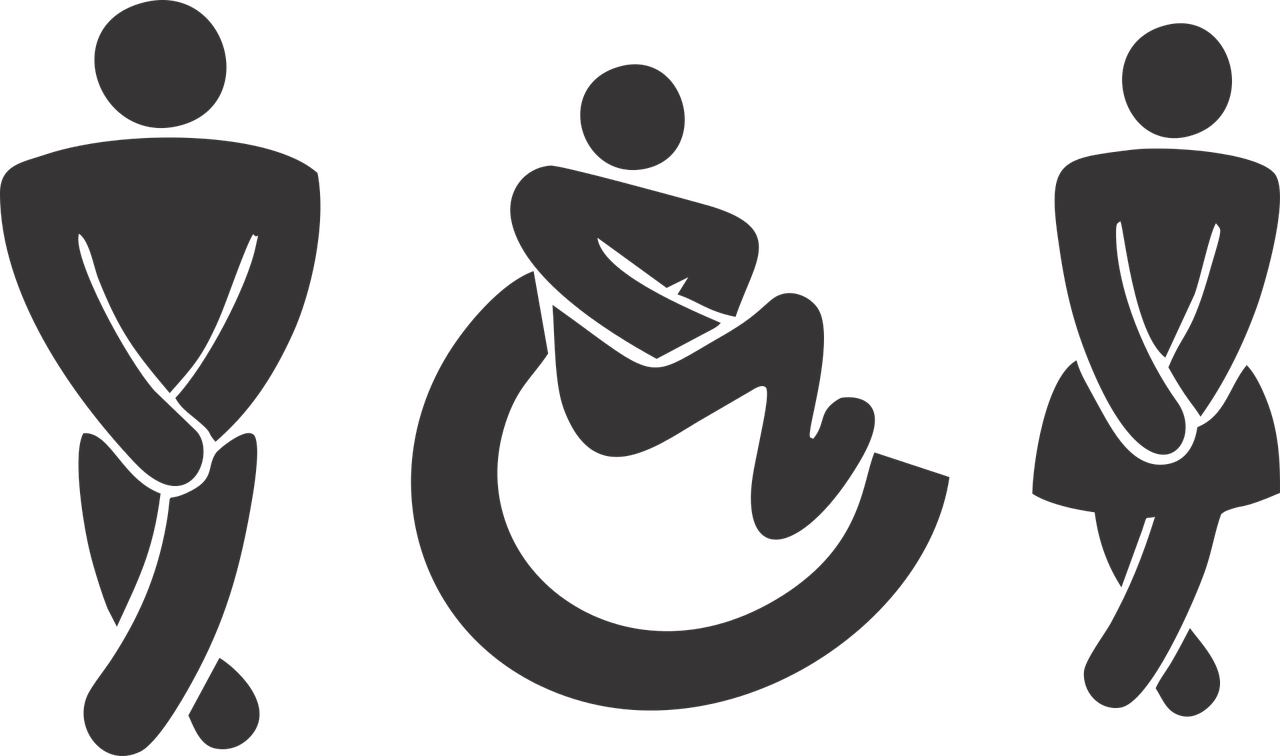Bladder Problems - Part 2
If you landed here first and would like to go to Bladder Problems - Part 1, click here.
As we mentioned at the end of part 1, there are three basic things that can go wrong with your bladder or urinary system when you have multiple sclerosis.
Bladder Problems - Part 2
- Failure to store
- Failure to empty
- Combined dysfunction
Failure to store
When you have a failure to store problem, demyelination has occurred somewhere between the spinal cord and the brain. The bladder is also usually small and spastic. As a result the bladder fills up more quickly than normal.
The messages that are sent to the spinal cord can't be transmitted to the brain. Why? Demyelination. If you know anything about MS, the myelin sheath is damaged as a result of an abnormal immune response. The resulting lesions cause your nerve signals to not work correctly.
This can lead to repeated signals from the spinal cord causing you to experience symptoms of urinary urgency or having to rush to the bathroom quickly.
You could also experience urinary frequency. This is when you feel the urge to go even though you just went. Another symptom you may have is dribbling where you can only urinate a small amount of urine at a time so you never completely empty your bladder.
Incontinence, or wetting yourself, is something that can also happen. This is an embarrassing problem to have, especially when you're out and about. It may even cause you to not want to go out as much as you used to. And as If those aren't enough, you may also experience nocturia, which is having to wake up frequently during the night to go to the bathroom.
How do you deal with these problems? Is there anything that can be done to treat or eliminate them? We'll talk more about this later.
Failure to empty
Multiple sclerosis can cause a failure empty. When this happens demyelination has occurred somewhere along the voiding reflex area in the spinal cord. What exactly does this mean?
Your bladder fills up, but because messages aren't being sent from the spinal cord to the correct place, you can't empty. Your brain never gets the message that your bladder is full. The sphincter muscle can't relax.
Your bladder becomes too full. This causes what is called a large, over-distended, flaccid, or atonic bladder. Many of the same symptoms that occur in failure to store can also happen in this case. You can have urinary urgency, dribbling, incontinence, as well as hesitancy.
The biggest problem however, is that urine, with all it's impurities, are not leaving your body. This can cause irreversible damage if not resolved.
Combined dysfunction
In this type of dysfunction, you would have both of the above bladder problems. This is called detrusor-external sphincter dyssynergia or DESD. I know that is a pretty long scientific term, but it simply means the following.
This combined dysfunction is the result of a lack of coordination. It simply means that the detrusor and the external sphincter contract at the same time. This causes urine to be trapped in your bladder.
You have to go to the bathroom, so there is urgency and there is also hesitancy because once you get there you can't go. You can dribble, plus you can also have incontinence. This can be an extremely frustrating and embarrassing problem to live with.
Depending on the extent and location of the lesions, your symptoms can be mild or they can be aggravating and difficult to live with.
It's important that you go to your doctor right away if you experience any of these symptoms. Urgency, hesitancy, dribbling, or incontinence, can be the result of any one of the above bladder problems we've talked about so far. As we talked about in part 1, Cir's doctor found out that he had a failure to empty.

He has always had bladder problems for as long as he can remember. Even as a teen he urinated slowly. The kids used to tease him because he took so long to go to the bathroom. When Cir's urologist first discovered that he had a dribbling problem, he prescribed the medication Flomax for him.
The medication helped for awhile. He was finally able to completely empty his bladder, though it still took a long time. The symptoms were reduced so that he could now function with some level of normality. Unfortunately, the problem didn't go away so this didn't completely resolve the problem for him.
If left untreated, permanent damage can occur to the urinary tract, such as urinary stones, UTIs, skin infections, or sepsis if infections spread to the bloodstream. Bladder problems along with all the other problems, can lead to mental issues like depression if people isolate themselves by restricting their activities.
What can you do to treat it? What medications will help to alleviate the symptoms? Are there therapies that will help as well?
To read more about bladder problems, go on to Part 3.
Go from Part 2 back to Part 1
Go from Part 2 to Multiple Sclerosis Symptoms
Dear Friends,
"Life in Spite of MS is a participant in the Amazon Services LLC Associates Program, an affiliate advertising program designed to provide a means for sites to earn advertising fees by advertising and linking to Amazon.com. We're also part of the Ebay Partner Network, another affiliate program."
We'd also like you to know it doesn't cost one cent more when you click through the links here on our blog. Not one single penny. And we will make a little extra cash when you do click through. We'll be ever so appreciative. You also have our word that we'll only link to things that we would use ourselves, (or wish we could have or use).
Sincerely,
Cir & Akrista
You are reading original content written by Akrista or Cir L'Bert of Life in Spite of MS. If you enjoyed reading this blog, please consider following us on Facebook, Twitter, Pinterest, and Instagram. See you there!
Privacy Policy ~ Advertising Policy ~ Disclaimer ~ Contact Us ~ About Us



New! Comments
Have your say about what you just read! Leave me a comment in the box below.